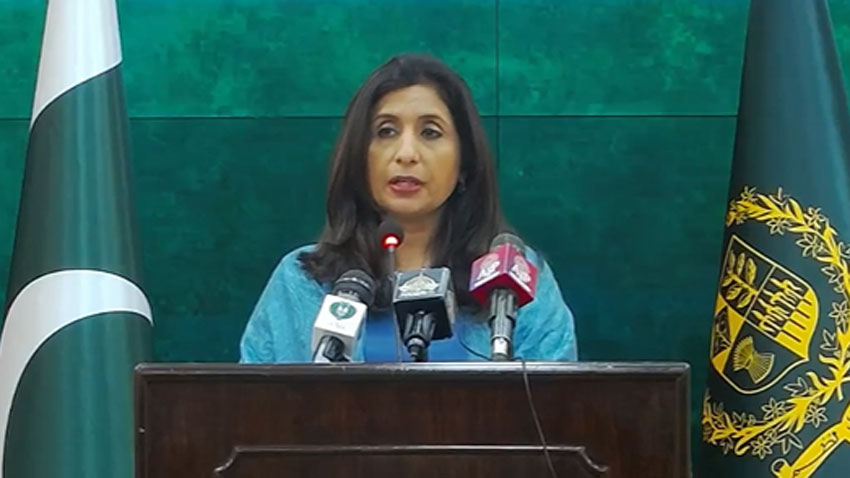ISLAMABAD: Pakistan expressed hope that the United Nations General Assembly (UNGA) emergency meeting will actively contribute to an immediate and unconditional ceasefire in Gaza.
During her weekly news briefing in Islamabad on Thursday, Foreign Office Spokesperson Mumtaz Zahra Baloch expressed regret over the UN Security Council’s failure to call for a ceasefire despite the escalating Palestinian death toll and blatant violations of international humanitarian laws in Gaza.
Reaffirming Pakistan’s unwavering support for the Palestinian cause, the spokesperson urged Israel’s supporters to intervene and halt the atrocities against Palestinians, emphasizing the need to lift the siege of Gaza.
Baloch emphasized, “The international community must also ensure that Israeli violence and bombing campaign does not spread and engulf the entire Middle East.”
Pakistan maintains that a lasting peace in the Middle East hinges on a two-state solution, advocating for the creation of a secure, viable, and contiguous state of Palestine based on pre-1967 borders with Al-Quds Al Sharif as its capital.
Addressing the imposition of sanctions by the US on three Chinese companies for providing missile-related items to Pakistan, the spokesperson noted, “In the past, we have seen entities added to the entity list on suspicion.” She highlighted the contradiction between such designations and the US policy of granting export control waivers to India for military technologies, undermining strategic stability in South Asia.
Responding to questions about the situation in Jammu and Kashmir, Baloch reiterated Pakistan’s call for peace and dialogue, emphasizing the need for New Delhi to ensure the peaceful living of people in Indian Illegally Occupied Jammu and Kashmir (IIOJK) without intimidation. She underscored the unwavering support for the Kashmiri people’s right to self-determination as per UN Security Council resolutions.
On the repatriation of illegal foreign nationals, Mumtaz Zahra Baloch clarified that the decision aligns with national laws to ensure Pakistan’s safety and security. She also communicated to Afghan authorities that this policy is not specific to Afghanistan.


